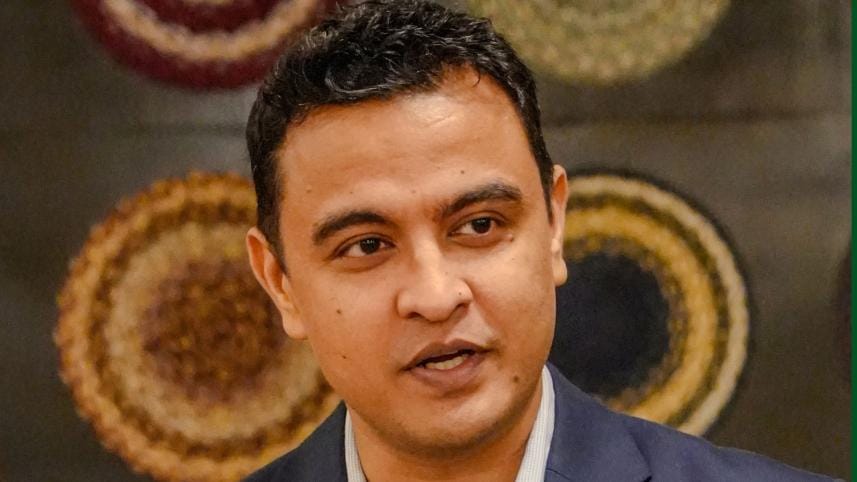Harnessing markets for rural resilience in Bangladesh

1. How is iDE Bangladesh's private sector engagement strategy addressing key development challenges, and what could deeper public-private partnerships bring?
At iDE Bangladesh, we see the private sector as a primary engine of inclusive development that can address today's toughest challenges. Our market systems approach aligns commercial incentives with social outcomes by building business models that serve low-income consumers by powering entrepreneurs. We focus on making the benefits clear for each community instead of using one-size-fits-all approaches. Every area has its own needs, so we design solutions that make sense locally and create real, lasting impact.
Through agriculture, Water, Sanitation and Hygiene (WASH), clean energy, and nutrition initiatives, we help local enterprises reach rural customers with affordable products that stimulate local economies.
Deeper partnerships with the government would bridge regulatory and financing gaps, give private sector confidence to invest in underserved areas, and accelerate rural-focused enterprises.
2. What are the main difficulties in working with the private sector in remote or underserved markets, and how is iDE addressing scale, sustainability, and inclusion?
The biggest challenges are thin markets, weak infrastructure, and high risk aversion among businesses. Many private sectors still view rural Bangladesh as commercially unviable due to low purchasing power and costly distribution networks.
iDE tackles these barriers by demonstrating that inclusive business can also be profitable. We co-design market solutions with local entrepreneurs—helping them understand customer demand, reduce business risks, and access finance. We link them with manufacturers, financial institutions, and digital platforms to strengthen their value chains and expand market reach.
Our experience shows that real change comes from building durable market systems, not temporary project structures. By supporting local enterprises to grow, connect, and compete, we foster scale and sustainability while ensuring that women and marginalized groups are integral to economic participation—not an afterthought.
3. Could you describe a recent example where collaboration with businesses delivered measurable improvements for rural households?
In the past three years, iDE has partnered with and supported more than 8,000 rural enterprises across sectors, including sanitation, agriculture, nutrition and clean energy.
Through these partnerships, over 250,000 farmers have gained access to affordable, labour-saving equipment and inputs—reducing costs, saving time, and strengthening climate resilience. In sanitation, collaboration with local producers and manufacturers has led to the sale of 1.5 million improved toilets.
Our new initiatives in nutrition and clean energy are expected to reach 50,000 households within the next two years, supporting climate adaptation and improving health and prosperity. In addition, iDE is supporting 50 startups focused on the green sector, promoting innovation and sustainable local enterprise growth.
4. Given the growing impact of climate change, how is iDE adjusting its business models and partnerships to ensure resilience and long-term results?
Climate change affects every aspect of rural life—from crops and water to health and livelihoods. At iDE, we are integrating climate resilience and green innovation across all sectors through partnerships ranging from solar irrigation and e-cooking to regenerative agriculture and climate-risk insurance, protecting both people and the environment. Our focus is on solutions that fit local realities, helping households manage risk and protect income. By embedding resilience within private-sector business models and prioritizing those most affected by shocks—particularly women and small producers—our aim is to keep markets adaptive, inclusive, and low-carbon, positioning rural enterprises as key drivers of Bangladesh's green transition.
5. What role should NGOs play in shaping Bangladesh's development priorities and building effective cooperation with government and the private sector?
The development sector should act as a facilitator—linking innovation to policy and markets to inclusion. Our role is to create trusted spaces where government, business, and communities co-design practical solutions that work on the ground. The goal is not to replace system actors but to demonstrate scalable models that public and private partners can adopt and sustain.
As Bangladesh moves toward middle-income status, the development sector must transition from direct delivery to enabling systemic change, mobilizing private investment, and upholding accountability. Sustained progress will depend on collaborative ecosystems where each actor plays to its strengths, communicates openly, and leverages all available resources, including those from markets, to tackle the complex challenges of today.
iDE, a global nonprofit organisation in 12 countries since 1984, drives poverty reduction through market-driven solutions in Bangladesh, scaling agriculture, WASH, climate resilience, clean energy, and women's empowerment.
This content has been published under 'Catalyzing Markets' - a media campaign jointly initiated by iDE Bangladesh and The Daily Star. This interview is conducted by Shams Rashid Tonmoy.




 For all latest news, follow The Daily Star's Google News channel.
For all latest news, follow The Daily Star's Google News channel.
Comments